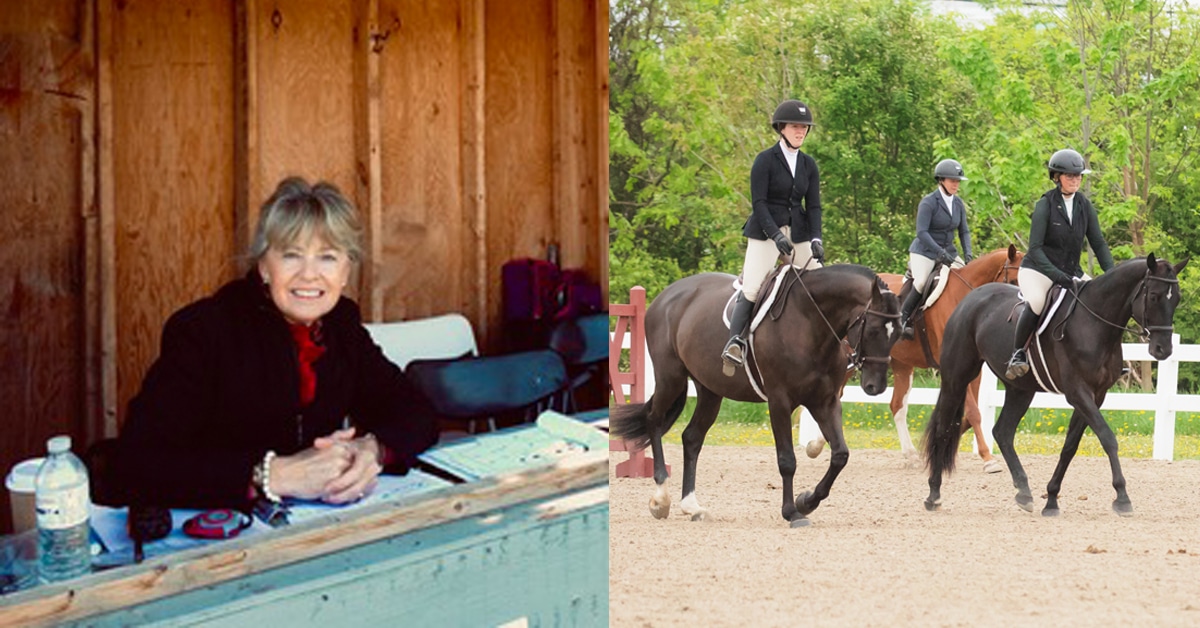If your horse is picky about what it eats, the first step is finding out why it is picky. Owners of picky eaters should consult with their veterinarians to rule out concerns such as gastric ulcers or dental problems that might make eating painful or difficult, as these are two of the most common reasons horses have trouble eating. Others may include parasite load causing gastric discomfort, pregnancy (particularly towards the end of pregnancy where the fetus is taking up more room in the abdomen), or overtraining and stress.
Once you are certain there isn’t a pathological or physiological reason why a horse isn’t eating well, you can start to look for behavioural causes and examine some different feeding “tricks” that may help boost the appetite.
Less, more often
If the vet doesn’t believe there are any health-related issues that might be causing a change in appetite, take a closer look at the horse’s diet and management to see if there are any clues there. Many athletic horses are picky eaters, and while the causes might be tied to gastric ulcers or the stress of training, sometimes it is the food itself. Because these athletes have such high nutritional requirements, they require a lot of food – upwards of 10 pounds or more per day. If they are only fed two meals per day, these meals become quite big and may be off-putting to a horse. In these cases you may consider dividing the meals up into several smaller meals – as many as five per day. There are automated feeders available to help with the management of feeding several meals per day.
Another potential reason eating issues develop with athletes – and non-athletes as well – is because their meals are too complicated and vary day-to-day or even meal-to-meal. Horses are creatures of habit and like to eat the same thing regularly, which is also better for their digestive tracts. For instance, if we only add supplements to one meal (and some horses receive a lot of supplements), provide several different grain mixes which might also be throwing off the nutritional balance of the diet, offer beet pulp in one meal per day but not the others, do weekly bran mashes (which do not have a laxative effect, by the way, if that is your intention), etc., we might be confusing our horses and doing more harm than good.
Back to basics
Frequent travel and sources of water, hay, and grain that taste “different” may also make meals unpalatable to horses. It may even be just one supplement or feed ingredient that doesn’t agree with your horse that is causing him to turn up his nose at feeding time.
Consider simplifying things a bit. Try offering just good-quality hay and one type of grain. Then add in the other grains and any supplements slowly over a couple of weeks, and perhaps you can pinpoint something that appears to taste “off” to your horse.
Management issues
Take a look at the feeding management at your facility. Are the horses all fed at the same time? Is your horse stressed at mealtime? If you think he may feel threatened that other horses may eat his feed, even if he’s in his own stall, you might consider isolating him at mealtime for some privacy. Other horses prefer knowing their buddies are also eating and should not be fed solo.
Is there something in how you feed that is affecting his eating behaviour? For example, is his grain bin too high or too low? Has the feed tub been cleaned recently, or is there mould growing in it? Simply watching your horse eat may tell you quite a bit.
Tempting the palate
If your horse is truly finicky and just doesn’t seem to like his food, there are some tricks you can try to get nutrients into him. The first is to take a good look at your hay and have it analyzed. High-quality alfalfa or very leafy grass hay is more palatable than older, stemmier grass hay. Different grass varieties may be preferred more than others, with timothy tending to be quite favourable. Fresh, good quality pasture is generally highly palatable for all horses and a good source of most nutrients, but may not be available to everyone, particularly in the winter months.
In terms of concentrates, if your horse eats less food, the food he does eat should be nutrient-dense. Feeds designed for athletes or senior formula mixes tend to have high-quality ingredients and are generally very palatable. You may also consider pelleted or extruded feed over a textured or sweet feed-type of grain mix so your picky eater can’t sort out the particles. Some pelleted feeds can be just as tasty as sweet feeds, thanks to molasses. And while molasses has lots of sugar and isn’t recommended for overweight horses or metabolic syndrome sufferers, is very palatable and if mixed well can help hide different odours, supplements, or even medicine.
Oats are also an excellent feed for a picky eater. While they may be low in some nutrients, they are highly palatable and may be a good base feed. Other feeds such as beet pulp and rice bran may be good options for finicky equines. Oil is an excellent source of calories, and various types of oil have different tastes and acceptability. Other flavoring agents such as anise, appetite stimulants such as thiamine (although there is no scientific data available for horses), or the addition of yeasts have been helpful for some horse owners.
You may need to do a little trial-and-error to determine what works or doesn’t work for your horse. Remember that any changes to your horse’s diet should be made slowly over several weeks. If your horse refuses to eat at all, it may a sign of significant pain or disease and your veterinarian should be called immediately
The Latest









